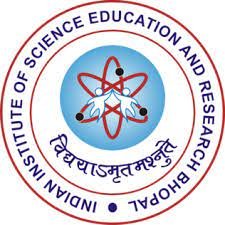Graduates of the BS-MS in Physics program are well-equipped for diverse career opportunities and further academic pursuits. They can pursue advanced degrees (M.Sc. or Ph.D.) in physics or related fields, leading to careers in research, academia, or industry. Alternatively, they can enter
Future Scope & Benefits for BS-MS in Physics Course
The integrated Bachelor of Science-Master of Science (BS-MS) program in Physics offers a comprehensive education in the field of physics, equipping students with a deep understanding of fundamental principles and their applications. This program provides a strong foundation in physics and opens up a wide range of opportunities for graduates. In this article, we will explore the future scope and benefits of pursuing a BS-MS in Physics.
Future Scope of BS-MS in Physics
The future scope of BS-MS in Physics is promising, with diverse opportunities in research, technology, and academia. Graduates can specialize in areas like astrophysics, quantum physics, or materials science. Their expertise in experimental and theoretical physics will be in high demand for advancing scientific knowledge, ensuring a dynamic career landscape with numerous possibilities in various scientific disciplines.
-
Academic Research: Graduates can pursue a Ph.D. in physics and engage in cutting-edge research in areas such as particle physics, condensed matter physics, astrophysics, and more. They can become university professors, contributing to the advancement of physics knowledge.
-
Industrial Research: Many industries, including technology, aerospace, and energy, require physicists for research and development. Graduates can work in research and innovation roles, developing new technologies and products.
-
Data Science and Analytics: Physics graduates possess strong analytical and problem-solving skills, making them well-suited for data science and analytics roles in various sectors, including finance, healthcare, and technology.
-
Quantum Computing: As quantum computing continues to advance, physicists are in high demand for developing quantum algorithms and hardware, revolutionizing the computing industry.
-
Astronomy and Astrophysics: Graduates can pursue careers in astronomy and astrophysics, studying celestial objects, galaxies, and the universe's fundamental properties.
-
Nuclear and Particle Physics: Physicists in this field explore the fundamental constituents of matter and the forces that govern them. They can work at research facilities such as CERN and contribute to our understanding of the universe.
-
Medical Physics: Physics plays a crucial role in medical imaging, radiation therapy, and healthcare technology. Graduates can work in hospitals and healthcare institutions, ensuring the safe and effective use of medical equipment.
-
Education: Physics educators are in demand at schools and colleges, inspiring the next generation of scientists and engineers.
-
Government and National Laboratories: Physicists work in government agencies and national laboratories on projects related to national security, energy, and scientific research.
Benefits of Pursuing BS-MS in Physics
Pursuing a BS-MS in Physics offers several benefits. It provides a solid foundation in physics principles, fostering problem-solving and critical thinking skills. Graduates are well-prepared for careers in research, technology, and academia. The integrated program streamlines the transition to advanced studies or immediate employment, ensuring versatility and a strong foundation in physics, making them valuable contributors in various scientific fields.
-
Deep Understanding: The program provides a deep understanding of the fundamental laws of the universe and their applications, fostering critical thinking and problem-solving skills.
-
Versatility: Physics graduates are versatile and can adapt to various career paths due to their strong analytical and mathematical backgrounds.
-
Innovation: Physicists are at the forefront of technological innovation, contributing to advancements in fields such as electronics, materials science, and energy.
-
Global Relevance: Physics is a globally relevant field, and physicists often collaborate with researchers from around the world on international projects and experiments.
-
Intellectual Challenge: Physics offers intellectual challenges and opportunities to solve complex problems, making it a rewarding field for those who enjoy exploration and discovery.
-
Interdisciplinary Collaboration: Physicists often collaborate with experts from other disciplines, leading to interdisciplinary research and innovation.
-
Job Security: Physics-related professions offer job security and competitive salaries, especially in research, academia, and technology sectors.
 5 Years
5 Years
 Post Graduate
Post Graduate
 Science
Science
 Full Time
Full Time











 back
back